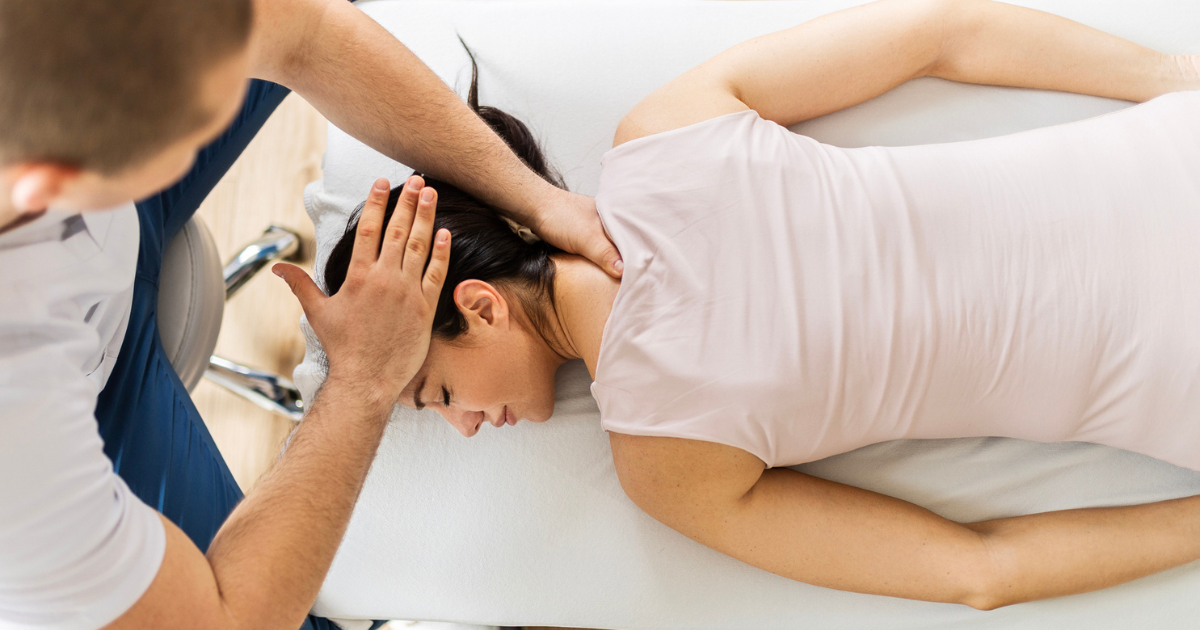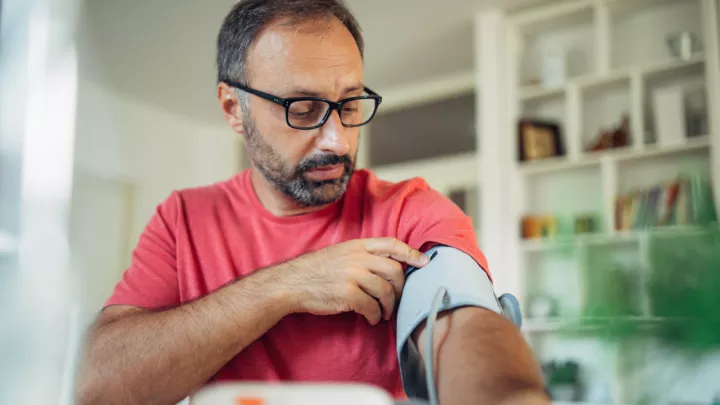What are natural remedies for pain relief?

Pain is one of the few things virtually every human experiences. Whether it's mental, emotional or physical, we're all but guaranteed to endure some form of pain. Despite this universality, many still don’t know much about pain. "In general, it's a topic people don't learn much about," says family medicine physician Darby Luckey, DO. Because of this lack of understanding, many people don't know there are a lot of natural remedies for pain with established track records of working.
The osteopathic approach to pain
“Osteopathy is about taking a holistic approach to patient care, including pain," says Dr. Luckey. "It's an understanding that people are a unit comprised of mind, body and spirit." Accordingly, pain doesn't just affect your body; it impacts these other aspects of your person, too.
Location, quality, duration, and severity are all important factors in pain. Still, in osteopathy, providers also want to know how the pain is impacting your spirit or mood and how your day-to-day activities could be impacting that pain. Factors like sleep, exercise and food influence your neuro-network and how you respond to pain.
“Osteopathy aims to understand a patient's whole story about their pain and specific situation," says Dr. Luckey, which relates to the field's original purpose. According to osteopathic medicine pioneer Andrew Taylor, "It's the object of a physician to find health; anyone can find disease.”
Natural pain remedies
“One aspect of pain you can't leave out is nutrition," says Dr. Luckey. " What we eat is crucial to our health. How we eat can be truly transformational and can either be a sure form of toxins and inflammation, or a sure form of anti-inflammatory, pain reduction and vitality.”
Eating as low on the inflammatory index as you can, eating whole plant foods and avoiding processed foods can all help improve pain from various origins and for various reasons. There are also specific foods that can help reduce pain.
For example, spices like ginger and turmeric are proven pain-reducers. "Ginger has evidence for efficacy for symptoms like menstrual cramps or headaches," says Dr. Luckey. Turmeric has tremendous anti-inflammatory properties and is similar to ibuprofen. It has been found to be effective for certain types of pain without the potential side effects.”
In addition to these ingestible natural pain remedies, there are also topical applications. Heat and ice are common thermal modalities. "Products like flaxseed oil, which is effective for those with osteoarthritis, are known pain relievers,” says Dr. Luckey. "Food, in general, is a really underutilized piece of a holistic pain reduction strategy.”
Dr. Luckey does have one caveat regarding natural food-related remedies for pain relief: supplements. "I would use caution regarding supplements," says Dr. Luckey. “I have personally had patients hospitalized with kidney failure from taking supplements they had purchased over the counter and presumed to be safe. Stick to whole-plant, real foods. Usually, substituting supplements for these foods is more costly, less safe and less effective.”
Manual therapies
Manual therapies are also vital components of natural remedies for pain reduction. "I think they naturally connect to your body's structure and function," says Dr. Luckey. "So, exercise is critical. It has a hypoalgesia effect – meaning it reduces pain.”
Along with regular exercise, other manual therapies include:
- Osteopathic treatments
- Physical therapy
- Massage
- Acupuncture
- Chiropractic care
“There are many benefits patients can gain from these different manual therapies, and some have great evidence behind them," says Dr. Luckey. "So, if it's not cost-prohibitive, adds to the person's overall wellness, and doesn't harm, I think all of those are great options." According to Dr. Luckey, physical therapy is especially noteworthy as it helps strengthen patients and prevents further long-term problems.
Helping the mind and spirit
As previously mentioned, osteopathy provides a holistic approach to pain reduction, which means addressing how pain affects a person physically, mentally and spiritually. To handle the mind and spirit portions of a person’s pain, Dr. Luckey recommends counseling or behavioral health adaptations, especially for those with chronic pain.
“Mental and behavioral therapies should be a cornerstone of their pain management," says Dr. Luckey. "It's about determining how we can support this person mentally to thrive despite their chronic pain." There are different forms – like cognitive behavioral health or dialectical behavioral therapy – but they all should help guide a patient to their optimal wellness mentally.
Counseling and behavioral therapy also relate to pharmacotherapy. "We know mood medicines can improve pain scores, and some are specifically for chronic pain," says Dr. Luckey.
Additionally, sleep is crucial to improving your pain. “We know sleep disturbance can be a risk factor for worsening pain outcomes." So, optimizing your daily routine for good sleep and practicing good sleep hygiene is essential. Relatedly, if you have insomnia, practicing cognitive behavioral health for this issue can be helpful.
Time outside, specifically in nature, can be positive for pain and multiple areas of health. Forest bathing, or even simply taking lunch over your work break, can improve pain and function for those who suffer from chronic pain.
Treating your pain
It's common for those with chronic pain to feel powerless, like there's nothing they can do to feel better. "What's true is that people need to be empowered," says Dr. Luckey. "People need to know the possibilities and work with their medical team to recognize how they can eat, move and sleep better.”
All these natural remedies are essential, but according to Dr. Luckey, avoiding negative behaviors is just as vital. Smoking, inactivity, highly processed diets and taking opiates are all examples of behaviors that can worsen pain. Likewise, patients need to consider their mood and if it’s worsening or if they’re becoming depressed.
“You might think you're depressed because you're in pain, but if you don't treat your depression or become stuck in a cycle of pain and depression, it will only add to the negative effects of pain," says Dr. Luckey. "It sounds so basic, but when it comes to improving function and pain scores, staying hydrated, exercising, sleeping and eating well are all critical.”







